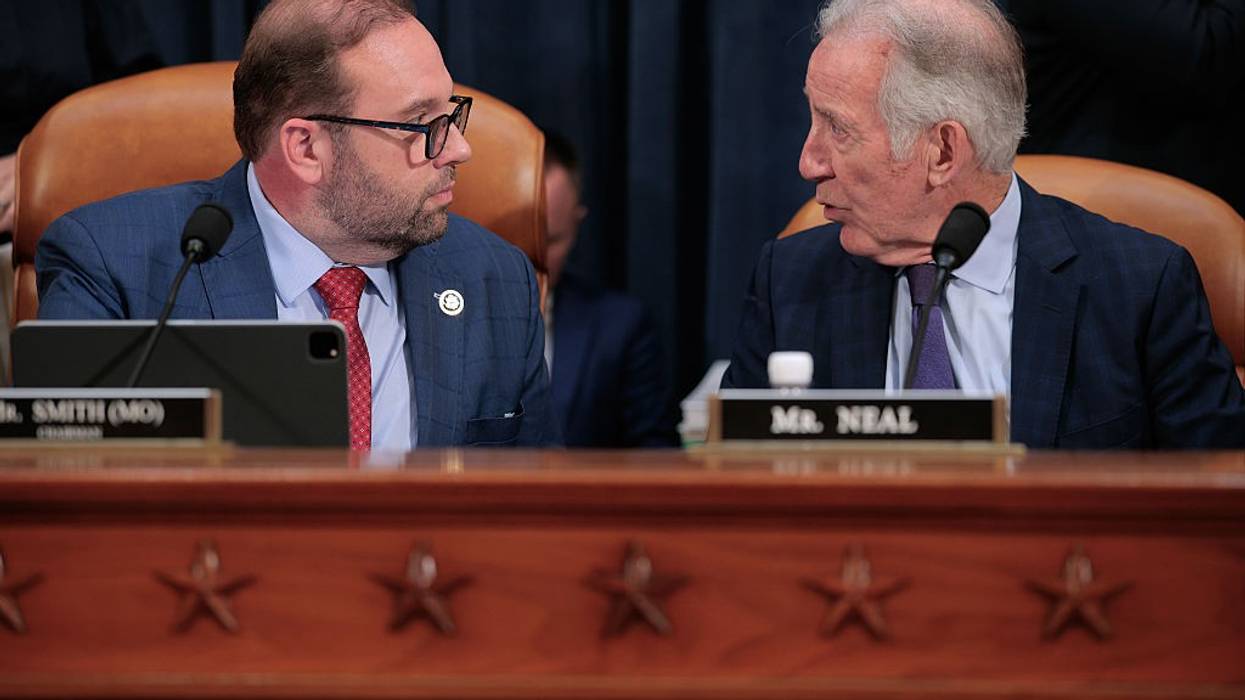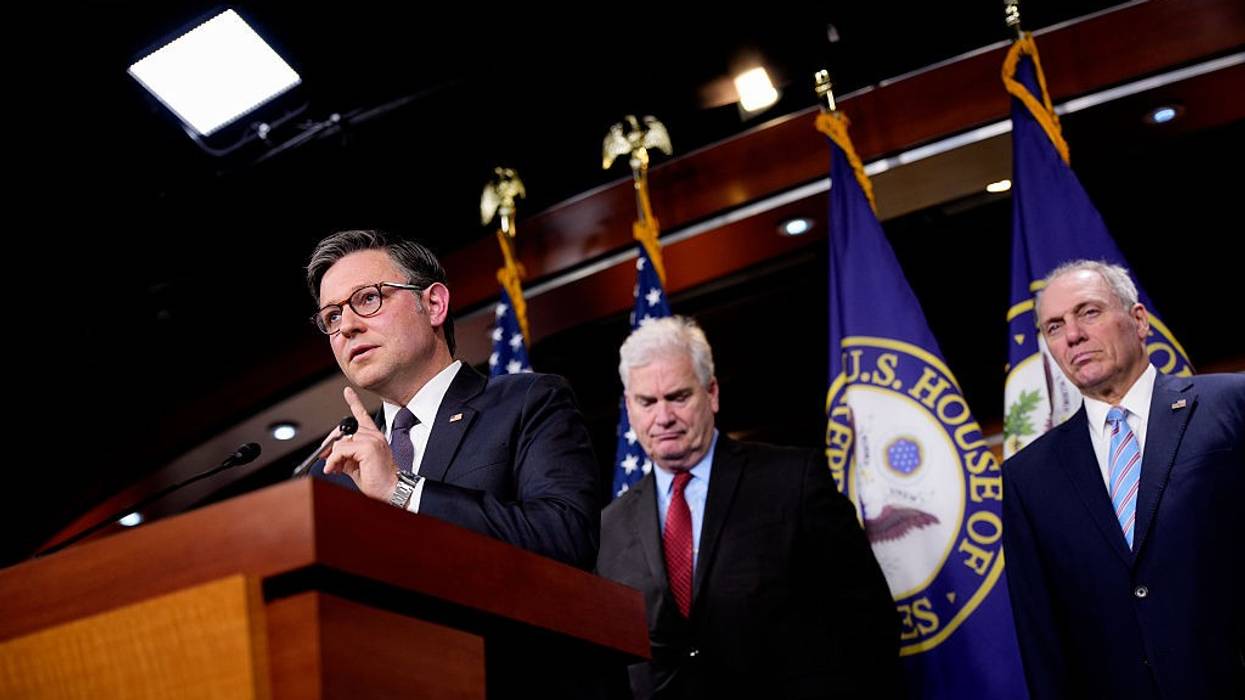The ACLU
warned Tuesday that the provision—dubbed the "nonprofit killer" by critics—would grant the executive branch the power to "effectively shut down" entities including independent media like Common Dreams, universities, religious institutions, political organizations, advocacy groups, and charities under the guise of combating terrorism. The contentious language was buried on page 380 of the reconciliation bill prior to its markup.
"No president should have the right to destroy nonprofits for no reason."
More than 200 groups collectively condemned the proposal in a Wednesday statement, warning, "Charities that feed the hungry, churches and faith communities that comfort the grieving, veterans' groups that care for our heroes, and countless other service providing organizations are at risk today because of this legislation."
"Nonprofits are on the frontlines of meeting every community need," the coalition continued. "Whether it's an organization providing healthcare in a disaster, a small rural church, or a local food bank, no organization is safe if this becomes law."
H.R. 9495 was
first introduced in the previous Congress but failed to receive a Senate vote before the legislative term expired last year. It allows the treasury secretary "to accuse any nonprofit of supporting terrorism—and to terminate its tax-exempt status without due process," the advocacy group Free Press Action explained in statement, warning the ostensibly anti-terror provision would be used to "crush dissent."
Civil liberties groups say its lack of clarity regarding the determination of whether or how a nonprofit supports terrorism would enable Trump to follow through on his threats to cancel the tax-exempt status for organizations he does not like.
"Today, the legislation formerly known as H.R. 9495 has returned to wreak havoc against dissenting voices across the country's nonprofit sector," Free Press Action advocacy director Jenna Ruddock
said Wednesday.
"Like too many other overbroad and easily abused powers, this measure would undoubtedly be weaponized by a White House with a track record of attacks against any speech that displeases our authoritarian president," Ruddock continued.
"The bill would have a widespread chilling effect not only on nonprofit groups but on the millions of people across the United States who rely on these organizations to help them access crucial services and engage in the political process," she added.
"We've already seen the Trump administration falsely conflate students protesting in support of Palestinian rights with Hamas, deport immigrants to a [Salvadoran] prison without due process, and detain students thousands of miles away from their loved ones for criticizing U.S. foreign policy," ACLU senior policy counsel
Kia Hamadanchy said Tuesday.
"It is not a stretch to imagine how this bill could be used to pressure universities to shut down student groups, scare human rights organizations away from working with vulnerable communities, and further stifle dissent in this country," Hamadanchy added.
Ruddock of Free Press Action said that "it's not hard to imagine how the Trump administration would use [the bill] to exact revenge on groups that have raised questions about or simply angered the president and other officials in his orbit."
Lia Holland, campaigns and communications director at the digital rights group Fight for the Future, called the proposal "a five-alarm fire for nonprofits nationwide."
"This is a First Amendment issue—no president should have the right to destroy nonprofits for no reason," Holland added.
While the provision's proponents argue it is necessary to crack down on nonprofits that raise money to fund terrorism, Holland said that is "a bald-faced lie, as there are already laws that prohibit and punish such activities without taking away our civil liberties."
Ruddock warned: "Chilling free speech doesn't keep Americans safe. Instead, it gives an authoritarian regime another tool to violate the rights that form the foundation of a healthy democracy."




